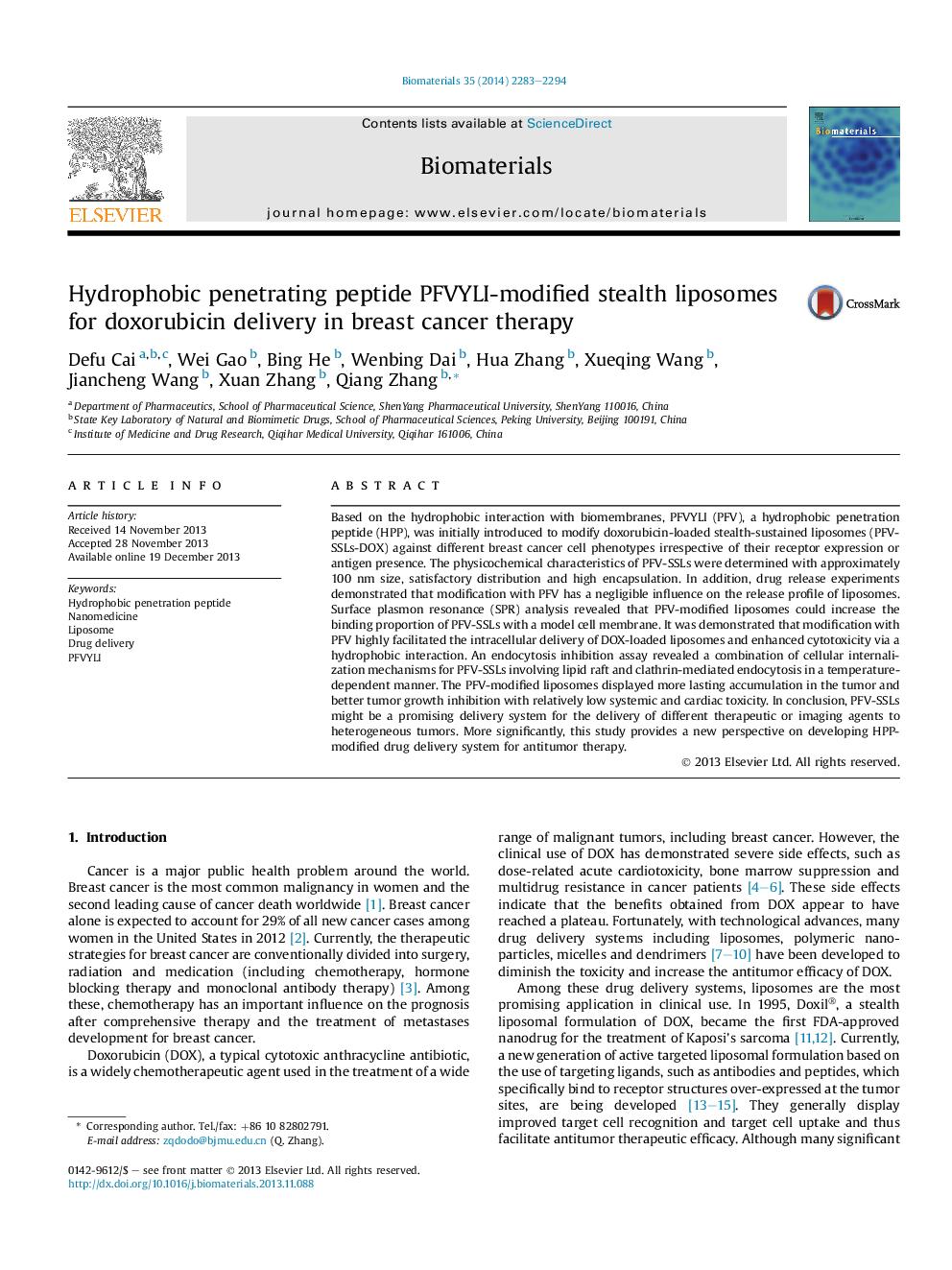| Article ID | Journal | Published Year | Pages | File Type |
|---|---|---|---|---|
| 10228393 | Biomaterials | 2014 | 12 Pages |
Abstract
Based on the hydrophobic interaction with biomembranes, PFVYLI (PFV), a hydrophobic penetration peptide (HPP), was initially introduced to modify doxorubicin-loaded stealth-sustained liposomes (PFV-SSLs-DOX) against different breast cancer cell phenotypes irrespective of their receptor expression or antigen presence. The physicochemical characteristics of PFV-SSLs were determined with approximately 100Â nm size, satisfactory distribution and high encapsulation. In addition, drug release experiments demonstrated that modification with PFV has a negligible influence on the release profile of liposomes. Surface plasmon resonance (SPR) analysis revealed that PFV-modified liposomes could increase the binding proportion of PFV-SSLs with a model cell membrane. It was demonstrated that modification with PFV highly facilitated the intracellular delivery of DOX-loaded liposomes and enhanced cytotoxicity via a hydrophobic interaction. An endocytosis inhibition assay revealed a combination of cellular internalization mechanisms for PFV-SSLs involving lipid raft and clathrin-mediated endocytosis in a temperature-dependent manner. The PFV-modified liposomes displayed more lasting accumulation in the tumor and better tumor growth inhibition with relatively low systemic and cardiac toxicity. In conclusion, PFV-SSLs might be a promising delivery system for the delivery of different therapeutic or imaging agents to heterogeneous tumors. More significantly, this study provides a new perspective on developing HPP-modified drug delivery system for antitumor therapy.
Keywords
Related Topics
Physical Sciences and Engineering
Chemical Engineering
Bioengineering
Authors
Defu Cai, Wei Gao, Bing He, Wenbing Dai, Hua Zhang, Xueqing Wang, Jiancheng Wang, Xuan Zhang, Qiang Zhang,
